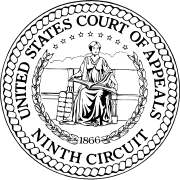User:Info2014bears/sandbox
| Jake Mandeville-Anthony v. The Walt Disney Company, et al. | |
|---|---|
 | |
| Court | United States District Court for the Central District of California |
| Decided | July 20, 2011 |
| Citation | Case No. CV 11-2137 VBF (JEMx) |
| Holding | |
| The Ninth Circuit affirmed the District Court's opinion that Mandeville-Anthony's copyrighted works were not substantially similar to Walt Disney's. It also affirmed the District Court's opinion that Mandeville-Anthony's claim for breach of implied contract was barred by two-year statute limitations for which he had claimed five years later. | |
| Court membership | |
| Judge sitting | Valerie B. Fairbank |
| Keywords | |
| Copyright Law | |
Jake Mandeville-Anthony v. The Walt Disney Company, et al.,, is a United States Court of Appeals for the Ninth Circuit case in which the Court held that any copyright infringement claim on the part of the Plaintiff was dismissed because the parties’ works were not substantially similar as a matter of law. [1] Plaintiff Mandeville-Anthony made claims that Walt Disney had infringed on his copyrighted works of Cookie & Co. and Cars/Auto-Excess/Cars Chaos through Disney's works CARS, CARS 2, and CARS Toon: Mater’s Tall Tales. The United States District Court for the Central District of California dismissed Mandeville-Anthony's complaint.
Facts and Procedural History
[edit]In 2006, The Walt Disney Company released an award-winning movie called CARS, based on a story about a car racer who, through his journey of car racing turned from a hotshot racecar that was arrogant to one who learned about the true meaning of love, friendship, family and life. Jake Mandeville-Anthony claimed five years later that works found in CARS, CARS2, and CARS Toon: Mater's Tall Tales, the television animation series released shortly after infringed on his copyrighted works. He also claimed that before the making of CARS, that he signed a contract with The Walt Disney Company that would bar it for two years from using his ideas in Cookie and Cars Chaos in their own works. Cookie was a story of two eccentric businessmen who won a vintage car endurance rally from London to Sydney, winning the race. Cars Chaos was a television series which contained general ideas in its script about fast, good looking that would race in different parts of the world.
Trial Court Proceedings
[edit]Defendant's Claims
[edit]Mandeville-Anthony stated a claim for copyright infringement and breach of contract, stating there was an implied promise by The Walt Disney Company to compensate him for his novel ideas for stories concerning anthromorphic cars characters, and that the agreement was made around June 2006, during the time of which Cars was released. [2] In his claim, Mandeville-Anthony that The Walt Disney Company had access to his copyrighted works and used them to create their own derivative works.
Plaintiff's Claims
[edit]The Walt Disney Company claimed that its works were not substantially similar to Mandeville-Anthony's. It also claimed that the statute of limitations based on its two year limit was expired. [3]
Opinion of the Court
[edit]The court granted motion for judgment on the Pleadings for copyright infringement without leave to amend, stating that Walt Disney showed that the protectable elements of such features as plot, sequence of events, pace characters, theme, mood and setting were not substantially similar as a matter of law. [4] [5]
The court also granted motion for judgment on Pleadings for breach of implied contract stating that Walt Disney showed sufficient evidence that that statute of limitations had expired.
Holding
[edit]The United States Court of Appeals for the Ninth Circuit affirmed the district court's decision that there was no substantial similarity between the Plaintiff's protected elements of copyrighted works and the Defendant's works as a matter of law. [6] It also cited Benay v. Warner Bros. Entm’t, Inc., 607 F.3d 620, 624 (9th Cir. 2010) and stated that general concepts such as car racing and anthromorphic cars is unprotected. The Ninth Circuit believed overall that Mandeville-Anthony's arguments were unpersuasive.
References
[edit]- ^ "Court: Disney/Pixar's Cars Don't Infringe Mandeville-Anthony's Copyrights". Los Angeles Intellectual Property Trademark Attorney Blog.
- ^ Jake Mandeville-Anthony v. The Walt Disney Company, et al., No. CV 11-2137 VBF (JEMx) 2011 U.S. Dist. (C.D. Cal. Jul. 25, 2011).
- ^ "Rule 12. Defenses and Objections: When and How Presented; Motion for Judgment on the Pleadings; Consolidating Motions; Waiving Defenses; Pretrial Hearing". Legal Information Institute at Cornell Law School.
- ^ Jake Mandeville-Anthony v. The Walt Disney Company, et al., No. CV 11-2137 VBF (JEMx) 2011 U.S. Dist. (C.D. Cal. Jul. 28, 2011).
- ^ JAKE MANDEVILLE-ANTHONY v. THE WALT DISNEY COMPANY, WALT DISNEY PICTURES, DISNEY ENTERPRISES, INC., PIXAR, PIXAR ANIMATION STUDIOS, No. CV 11-2137 VBF (JEMx) 2011 U.S. Dist. (C.D. Cal. Mar. 14, 2011).
- ^ JAKE MANDEVILLE-ANTHONY v. THE WALT DISNEY COMPANY; et al., No. 11-56441 U.S. Dist. No. 2:11-cv-02137-VBFJEM (9th Circuit Jul. 17, 2012).
